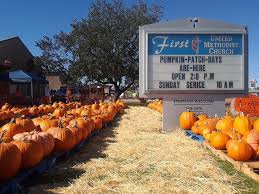by A. Salvato
Guest Columnist
As I sit here smelling all the familiar smells of Milanese simmering on the stove and writing this article, I begin to reflect on the significance of St. Joseph celebrations, which takes place on Tuesday, March 19 2013 around the world to commemorate the feast day of st. Joseph.
The tradition of building elaborate altars in order to place offerings of various foods dates back to the Middle Ages when an intense period of drought decimated agriculture and created extreme hardships for the peasants of Sicily where wheat and other crops accounted for a major portion of the diet. Seeing no relief in sight the people of Sicily prayed for the intercession of St. Joseph, husband to Mary, father of Jesus Christ, and their patron saint. This is why so many Sicilian-Americans’ first or middle names are commonly Joseph. Miraculously the drought lifted with heavy rains soaking the moisture-starved island. Giving thanks to st Joseph’s help and intercession the peasants constructed a massive altar in celebration of the bountiful harvest on the feast day of Joseph. The people carefully placed the fruits of this miraculous harvest of the land and sea were placed to distribute to the faithful after being blessed by the clergy. Many to this day put aside a portion of this blessed bread in order to avert storms, bring rain, or bless someone about to embark on a journey, since Joseph is also the patron saint of travelers.
Since the feast day of St. Joseph fell in the period of lent leading up to Easter, peasants served what we call Milanese today. Placing 6 boiled eggs into my simmering pot of sauce, I’m reminded of the simplicity and economy of this traditional dish. To comply with the lenten abstinence from meat this pasta sauce is made with sardines instead of meat, eggs, ‘fenoke’ or fennel, and garlic in a traditional tomato sauce. Its a poor mans dish and very well could have been what caused general Patton during the World war II Allied invasion of Italy to declare that the Sicilian diet made them “The” most “wretched” of peoples. He failed to see the significance of such simple food. Its cheap and can feed a lot of people, which brings me to the main meaning of st. Joseph altars. Its simple—Generosity.
On that first celebration the peasants prayed in thanks for Joseph generosity in restoring the land and creating a bountiful harvest. As time progressed these altars would often be erected in peoples home where it was considered that st Joseph had impacted the family that year. Times of crisis averted, illness cured, or the qualities of Joseph were shown.
This years celebrations will have special meaning for myself, whose father was a tremendous help during my 5 month life living on the streets. During my homelessness I was fortunate to have a father who helped all he could, as well as friends and new acquaintances. During this time I was struck by how the congregations who band together in order to help the less fortunate were aging—a couple days ago I learned that my old church no longer continue the tradition of the St Joseph Altar. As the older generation pass on, the old traditions no longer seem important. On the contrary they are more important than ever. During these hard times we are continually reminded how not only our family members but also world leaders should care for each other as a father would, with generosity and compassion.
Please remember to go out and support or even volunteer at these church efforts to raise money to do good in our community. Purchase a traditional Milanese dinner, or donate money at the altar and choose from a variety of breads and desserts…my favorite of which are the biscotti which ill be baking over the weekend. When you attend notice the sense of generosity and how that generosity has helped thousands in the golden triangle, myself included. Enjoying you meal of pasta Milanese remember the long tradition of simplicity and generosity, and all the qualities of a good father are celebrated and remembered. Which reminds me, I have my own nostalgia simmering on the stove which I must get back to.


























